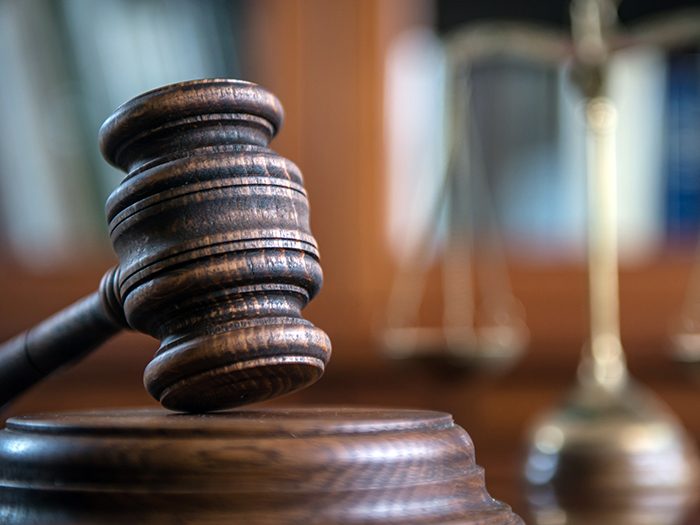Legal Roundup: Cisco’s Cyber Security Patent, Apple Sues Recycling Partner and More

Nintendo Sued Over Malfunctioning Controllers
The Case: Luz Sanchez and her young son sued Nintendo over a common complaint regarding Nintendo Switch controllers — in-game characters drift when nobody is touching the controller.
The potential class action claims that the problem makes the popular video game console unplayable.
Wired reports that Sanchez and her son are hardly alone in their complaint about the controllers — called Joy-Cons by Nintendo. “Characters inch left or right as if a ghost was operating the console. Nintendo didn’t acknowledge the problem much until July 2019. That month, a thread on the Nintendo Switch subreddit calling out Joy-Con drift received over 25,000 upvotes.”
The plaintiffs are asking for $5 million in damages.
Scorecard: The case has just recently been filed and has not come to a resolution. Attorneys for both sides declined to comment to Wired. However, Nintendo has offered to fix faulty controllers for free post-warranty, and its president issued an apology.
Takeaway: Anyone who remembers the pain-staking process of getting an old-school Nintendo Entertainment System to start up in the 1980s may be getting some déjà vu.
Perhaps it’s part of a pattern in which tech companies release products not quite ready for mass markets. Instead they release MVPs — minimum viable products — to get people using them quickly, giving the company feedback and allowing them to iterate accordingly. While helpful from a speed-to-market perspective, this tactic does open companies up to increased product liability exposure.
Especially today when complaints can find company quickly online, tech companies will need to consider if the benefits of MVPs outweigh the risk.
Apple Sues Recycling Partner for Not Shredding iPhones and iPads
The Case: They may not know it, but some iPhone and iPad users are buying devices once meant for the recycling bin.
Apple sued recycling partner GEEP for selling rather than shredding old iPhones and iPads. Apple is suing the Canadian company for $23 million for violating its orders.
The Washington Post reports: “In court documents, GEEP denied wrongdoing, claiming the alleged theft was carried out by rogue employees. GEEP, which was acquired by another recycling firm and is no longer in operation, is suing the alleged rogue employees, who have left the company. The former employees could not be reached for comment.”
Scorecard: The case has just recently been filed and has not come to a resolution.
Takeaway: The case calls into question Apple’s environmental practices and if the company is destroying devices that can still be used.
The company says it makes an effort to refurbish as many phones as possible and plans to go carbon neutral by 2030. A spokesperson told the Washington Post that “Apple products have ‘industry-leading longevity’ and that the company refurbishes ‘as many devices as we safely can each year, including over 10 million in the last year alone.’ Products are recycled only after ‘rigorous testing’ shows they don’t meet ‘industry-leading safety and quality standards.’ ”
Los Angeles Restaurant Loses Coronavirus Fight
The Case: Los Angeles restaurant Engine Co. No. 28 is the latest eatery to sue its insurance company over COVID-19-related business interruption.
It sued Travelers Indemnity Co. “in an attempt to recoup some losses stemming from the mandatory shut down of on-site dining and other non-essential activities back in March. Restaurant ownership claimed in the suit that revenue losses from the mandatory dining room closures amounted to a physical loss in the value of the company and the property itself,” according to Eater.
Scorecard: District Court Judge André Birotte Jr. rejected the restaurant’s claims, saying that the shutdown did not physically alter the property.
Takeaway: Similar situations are playing out around the country. From barber shops in San Antonio to restaurants in Texas, companies are overwhelmingly losing COVID business interruption cases.
Eater said the L.A. case is “setting precedent for what could be a tough round of claim denials for restaurants negatively affected by the ongoing coronavirus pandemic” and says that restaurants seem “to not have much of a legal leg to stand on.”
Cisco to Pay $1.9 Billion for Cyber Security Patent Infringement
The Case: Centripetal Networks Inc. sued Cisco for alleged patent infringement of its cyber security features.
Bloomberg reports that Centripetal “developed a network protection system, funded in part by a grant from the Department of Homeland Security, only to see Cisco integrate the inventions into its own networks after meetings and presentations by Centripetal officials.”
Cisco claimed it developed its cyber security long before Centripetal was even founded.
Scorecard: District Judge Henry Morgan in Norfolk ordered Cisco to pay $1.9 billion.
Bloomberg reports that Morgan “said Centripetal was owed $755.8 million for past use of the inventions, which he increased by two-and-a-half times after finding that Cisco’s infringement was ‘willful and egregious.’ He also ordered that Cisco pay a 10% royalty on sales of some of its products for the next three years, and then 5% in royalties for three years after that.”
Regarding the meetings between Cisco and Centripetal reps, Morgan claimed: “The fact that Cisco released products with Centripetal’s functionality within a year of these meetings goes beyond mere coincidence.”
Takeaway: While the dollar amount is high, “the total damage award accounts for less than three months of profit for Cisco. The company reported net income of more than $11.04 billion for calendar year 2019,” Bloomberg reported. &










